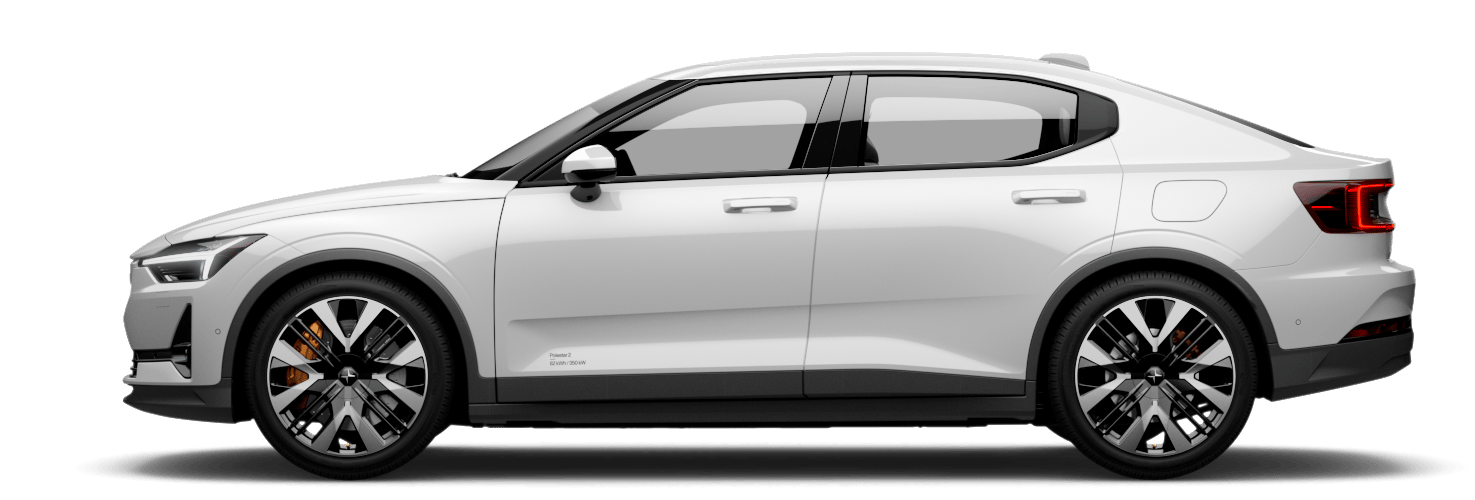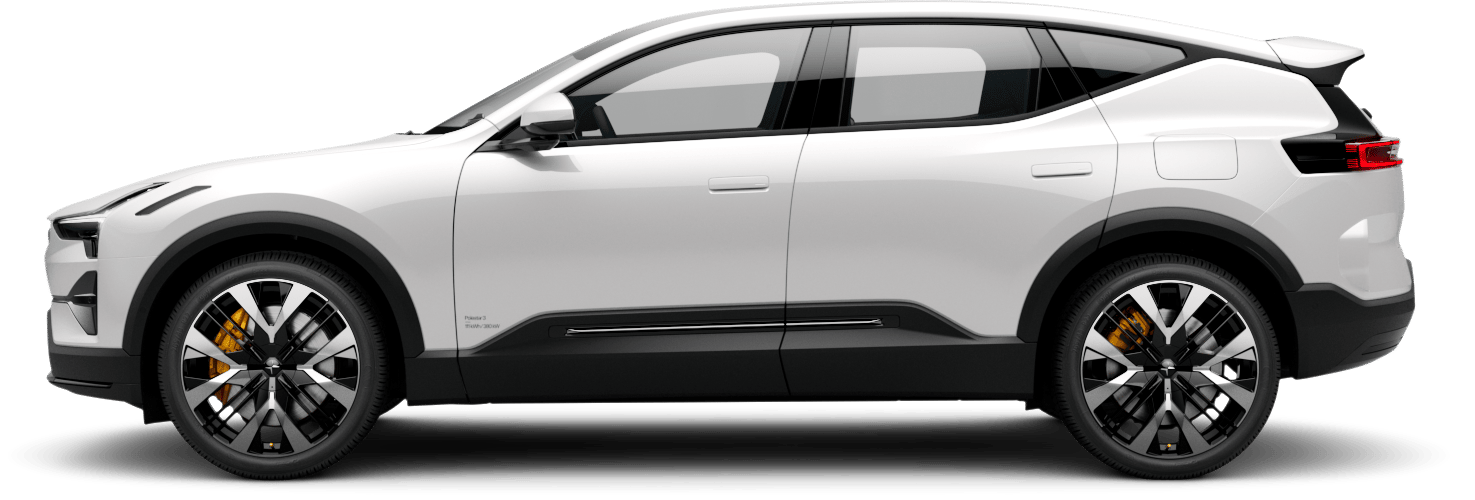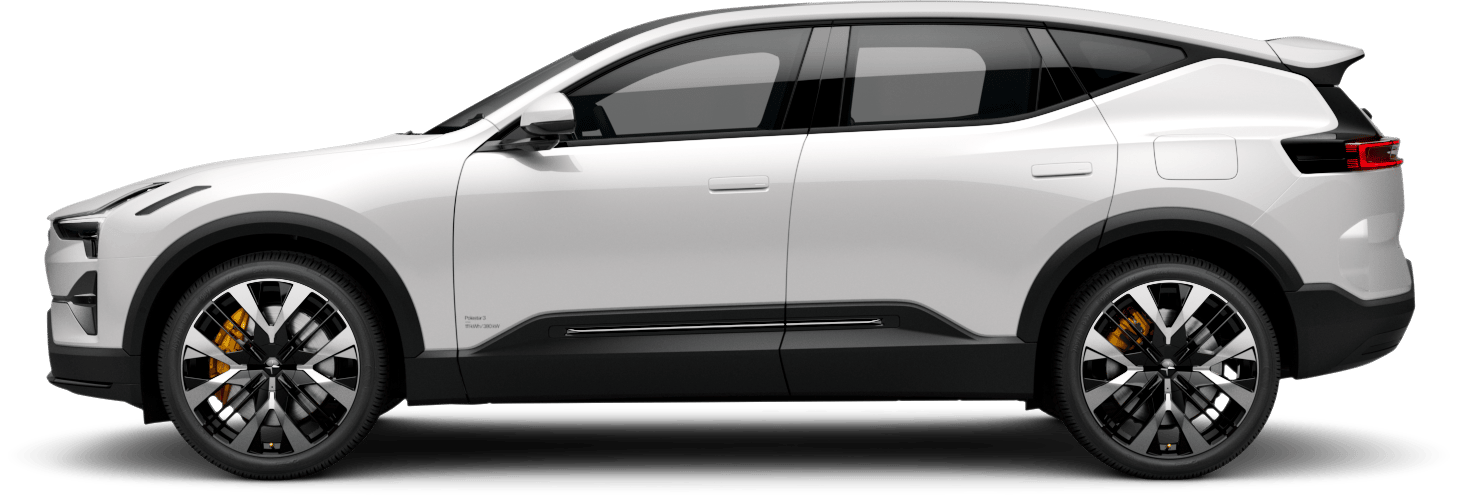The *Beep* Report
A summary of our 2022 Sustainability Report, without using the word sustainability.

It has finally arrived. The report of reports. More than sixty pages of graphs, percentages, milestones, and scope definitions. We are, of course, talking about the… the report where we tell you about our efforts to do right by the planet and those we share it with.
Polestar’s efforts towards creating a stable future for our planet boil down to four focus areas: climate neutrality, circularity, transparency, and inclusion. CCTI is the handy mnemonic device.
Climate neutrality
Polestar’s overarching target is to achieve climate neutrality across the entire value chain by 2040 – no small feat. To reach that target, we have several additional goals that need to be achieved along the way. For example, to halve the greenhouse gas (GHG) emissions per car sold by 2030 and produce a truly climate-neutral car by the same year.
To succeed, we must figure out how to use less carbon-intensive material and look for more renewable sources of energy to use in our production. We must also continue recycling by remanufacturing and reusing parts for reuse in our cars. With every update of our models, we take concrete steps/actions/measures to reduce GHG emissions. What you get are not simple facelifts.
The greatest embodiment of our climate neutrality efforts is the Polestar 0 project. Our moonshot goal of creating a truly climate-neutral-production car by 2030. Only by eliminating all emissions from our supply chain, manufacturing processes, and end-of-life of our cars can this be achieved. We intend to eliminate emissions throughout the supply chain without resorting to offsetting measures, like tree-planting.

Circularity
Circular cars are the key to a decarbonised future within the automotive industry. And we don’t mean our cars will be round.
Cars need to meet the growing demand for mobility, while simultaneously reducing their burden on our natural resources. That is, they need to consume less virgin material and instead use what has already been produced. The question is, how does one go about achieving this? Our overarching aim is to reduce non-circular materials per vehicle to as close to zero as possible.
This can only be achieved by going back to the very first stage: design.
Usually, the design stage is focused on functionality, quality, costs, and driver experience. Historically, these concerns have outweighed the importance of circularity. We must create a new design process where circularity is central, developing products whose materials can be reused repeatedly.
Let’s take aluminium as an example. All cars contain different grades of aluminium, yet recycling plants do not distinguish between them and simply recycle them as one material. This produces aluminium that is no longer suitable for high-grade applications, as most of it is downcycled into lower-grade metals.
The Polestar electric roadster concept presents a new solution for aluminium. All aluminium is labelled to enable recyclers to separate the different grades and recycle them individually. This enables a closed material loop in which the various grades of aluminium retain their original quality when recycled.

Transparency
Everything mentioned above hinges on our ability to be transparent. Transparency creates trust and demonstrates ownership and accountability for our developments. Therefore, we will continue to communicate openly about the true environmental and social impact of the entire life cycle of our electric cars, from production to end-of-life.
One of the biggest issues we face lies in the supply chain. Specifically, the extraction and refining of minerals. Hazardous working conditions, child and forced labour, as well as exploitation of indigenous people are unfortunately a negative reality in the mineral sourcing business. We acknowledge these risks, and work with trusted organisations to eliminate them in our supply chain – and keep it that way.
Material traceability is one of our greatest tools to increase transparency. Our ambition is to only source components containing tantalum, tin, tungsten, and gold (so-called conflict minerals) from supply chains with third-party validated, conflict-free smelters and refiners.

Inclusion
Diversity, representation, and equality are the pillars which hold up our vision of inclusion. We believe that promoting inclusion brings about a wealth of positive impacts. Whether it be increased innovation within our company, or better relationships between people and communities, inclusion is central.
We are committed to ethical business practices, upholding human rights, and creating an inclusive workplace and customer experience.
With regards to our workforce, our top priority is to ensure gender diversity in our recruitment. Even if the share of female employees at Polestar exceeds the industry standard, we are convinced that an improved gender balance will make us a better company.
The customer experience is also prioritised in our inclusion strategy. We aim to foster an inclusive culture within the organisation and remove any obstacles that may prevent diverse groups of customers from interacting with our products or services.
We will keep working toward our vision of the future with our focus on climate neutrality, circularity, transparency, and inclusion. To learn more and dive into the details, you can read the full report here.








